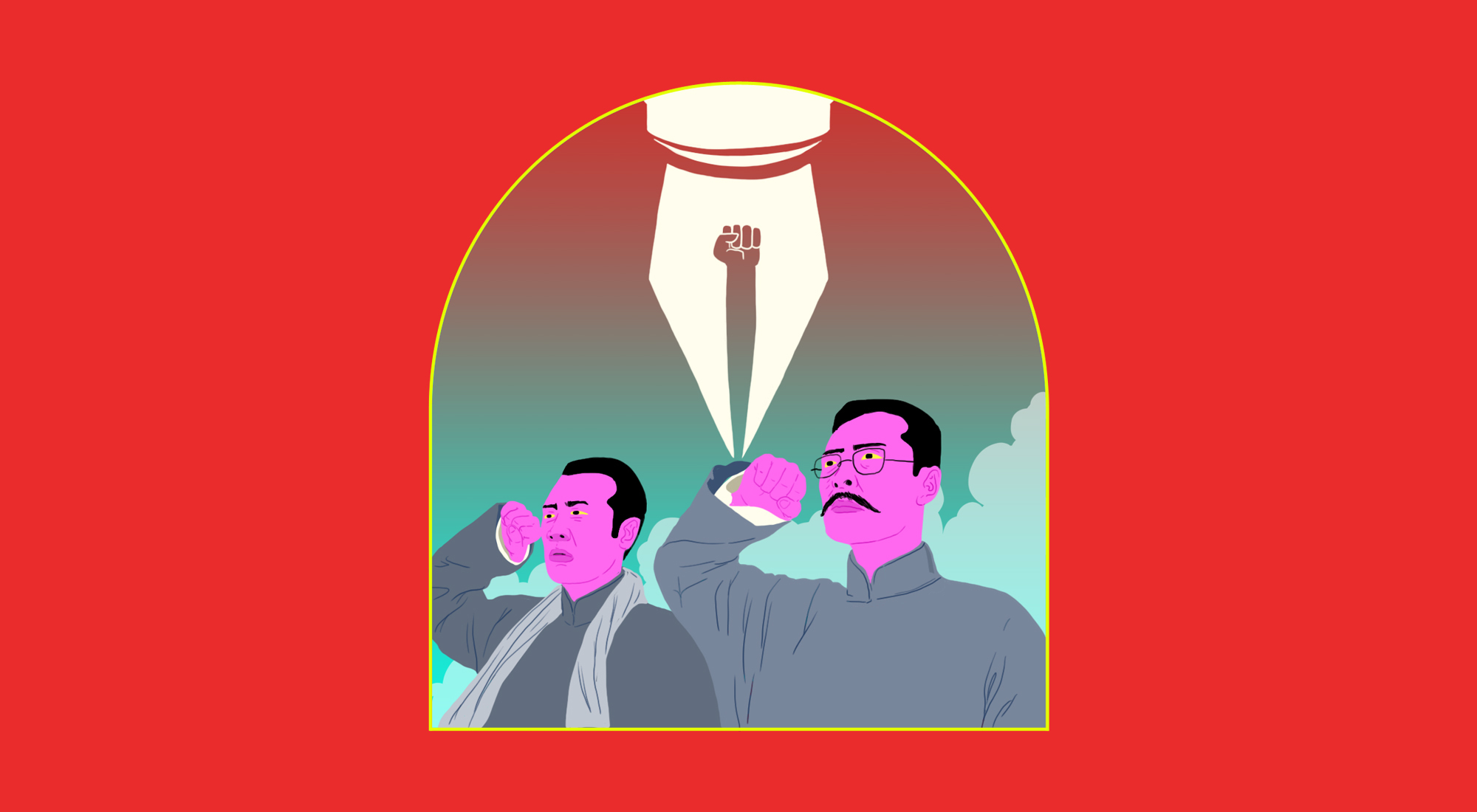‘Age of Awakening’: A Chinese revolutionary drama becomes a cultural touchstone (and propaganda coup)
A state-produced TV series chronicling the May Fourth Movement and the founding of the Chinese Communist Party is an unexpected critical success.

The history drama Age of Awakening (觉醒年代 jué xǐng nián dài) has been one of this year’s biggest hits in China. Produced to accompany the celebration of the 100th anniversary of the founding of the Chinese Communist Party (CCP) and co-sponsored by state propaganda departments, it has captured the imaginations of Chinese viewers in ways few other pro-Party dramas have done in recent memory.
The 43-episode series has received glowing reviews since its March finale, scoring a 9.3 out of 10 on Douban (among 350,000 voters). Many viewers expressed surprise at the unexpected quality of the “Red thematic drama” ( 红色题材剧 a term referring to ideology-infused state-sponsored productions). As one popular Douban comment reads, “It’s very unusual that a drama can so meticulously depict the events of the May Fourth Movement and the achievements of these historical figures…the script, the actors’ performances, the cinematography, and the directing are all first-class.”
Age of Awakening tells the story of the group of intellectuals based around Peking University that would become key founding members of the Chinese Communist Party, focusing on the journeys of protagonists Chén Dúxiù 陈独秀 and Lǐ Dàzhāo 李大钊, with appearances by Máo Zédōng 毛泽东, Zhōu Ēnlái 周恩来, and Lǔ Xùn 鲁迅. It begins in 1915 with the establishment of the influential New Youth (新青年 xīn qīngnián) magazine by Chen Duxiu, kickstarting the New Culture Movement against the backdrop of a young Chinese republic beset by foreign imperialism and warlord factionalism. It then follows Chen and Li Dazhao as they lead the charge during the succeeding May Fourth Movement in 1919, to which the bulk of the series is dedicated.
The track record of Party-history films and TV shows is spotty, to put it kindly. Ten years ago, in honor of the CCP’s 90th anniversary, the Party commissioned the film The Founding of a Party, which covered largely the same events as this year’s Age of Awakening. Despite being heavily promoted by state media, it proved to be a box office letdown and was panned by critics for its convoluted storytelling, made worse by the decision to cram in more than 100 well-known actors. The film’s online ratings had to be disabled to hide its embarrassingly low score.
Another attempt was made this year with the film 1921, only for it to be mired in controversy and have similarly little to show in ticket sales. Viewers expressed their disappointment online, criticizing its rigid exposition and poor storytelling. “There are many star actors in the film, but they’re used to poor effect. They’re shuffled on screen as unnecessary characters, leaving the main plot convoluted and rushed,” reads one comment on Douban. Another user remarked, “It’s better than the usual thematic stuff, but the incessant political slogans put me off.”
By contrast, Age of Awakening’s success seems to be explained in part by the fact that it does not wear its “thematic” credentials on its sleeve. It presents itself first and foremost as a period drama focused on telling the story of the New Culture and May Fourth generation. The establishment of the CCP is not presented as inevitable, nor does it play a significant role in the overall narrative. Pro-Party messaging is only introduced at the end, after viewers have established connections with the main characters.
Moreover, the series’s realism seems to set it apart. Its moderate pace affords the time to fully develop its characters as opposed to rushing from one historical plotpoint to the other. It invests time in showing more of the protagonists’ quotidian lives to make them seem more relatable and realistic.
“From the perspective of thematic dramas, this one is pretty good,” reads one popular Douban comment. “It has big historical events, but also the small everyday moments, like how it explores the family conflict in the relationship between Chen Duxiu and his sons.” According to another highly upvoted review: “It turns out that if [the state] puts its mind to it, it can produce such good shows. I always thought that I hated thematic dramas, but after seeing this one I realized that I actually like them, I just hate low-quality products.”
Age of Awakening appears to have done unexpectedly well among younger viewers. In accordance with the Party’s ongoing strategy to boost youth patriotism, the show has been promoted as an educational tool on Party history, and to underscore how far China has come. Teachers have screened it in classrooms, and field trips have been arranged to visit iconic historical locations featured on-screen.
China news, weekly.
Sign up for The China Project’s weekly newsletter, our free roundup of the most important China stories.
In particular, the themes of patriotism, of rallying the people to defend Chinese territorial sovereignty from foreign threats, and of selfless young revolutionaries dedicating their lives to the nation, seem to have found resonance among Chinese audiences. Its implicit messaging emphasizes the contrast between the chaos and poverty of the early Republican era with contemporary China. “It was the profound patriotism of that generation of martyrs and their sacrifice which allowed China to be as prosperous as it is today. We must never forget their contributions,” reads one Douban comment.
It is telling that the two sons of Chen Duxiu who meet tragic ends — Chén Yánnián 陈延年 and Chén Qiáonián 陈乔年 — have stood out as fan-favorite characters. As a sign of the series’s impact, a street named after the brothers in Hefei, Anhui province has turned into a public memorial as citizens leave notes and flowers to pay tribute to the “revolutionary martyrs.” By popular online demand, local officials have even pledged to commission statues of the two brothers.
Huawei founder Rèn Zhèngfēi 任正非 made headlines when he recommended his employees to watch it to learn more about Chinese history. Scenes from the series have been referenced on social media to rally public support during major events such as the recent Zhengzhou floods. Alibaba employees who organized support for an employee that came forward with sexual assault allegations reportedly said that they were inspired by the series.
Propaganda officials will be eager to replicate the success of Age of Awakening. Television dramas, as one of the most widely consumed forms of mass media, have emerged as an important arena for influencing public opinion, particularly among Chinese youth. The rise of more sophisticated, culture-defining “Red thematic dramas” just might become a trend.





